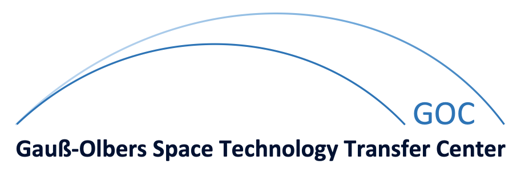Open 6G Hub
|
Subproject: Research and demonstration of new concepts for information |
 |
Initial Situation
Extremely fast, energy-efficient, fail-safe – and extremely complex: The German government is funding research on the next generation 6G wireless systems. The German Federal Ministry of Education and Research (BMBF) has now allocated 250 million euros for four 6G research hubs, 67 million of which are for the Open6GHub involving 17 collaborating research institutions. Within this hub, the University of Bremen is involved with a funding of five million euros. This enables leading German researchers from the fields of communications engineering, electrical engineering, and satellite systems to contribute their specialized expertise.
Objective
The "Open 6G Hub" designs a holistic 6G system catered to the requirements of users and society beyond 2030. The hub aims to contribute to a European and global 6G harmonization process that leads to a new mobile communications standard fit to the interest of German industry and society. It should strengthen a competitiveness of European companies and the technological sovereignty. Starting form use case definitions and analysis partners will word on technology components required for the future. Another key research aspect is the incorporation of artificial intelligence technologies developed specifically for communication systems to improve energy efficiency and reliability. The ultimate goal is to make future networks as powerful and efficient as possible.
Research Contribution of the University of Bremen
The University of Bremen is one of the largest research partners in the Open6GHub; the German Research Center for Artificial Intelligence (DFKI) in Kaiserslautern coordinates the project. “Within Open6GHub, we have taken on the ‘Beyond Cellular’ work package, which means moving away from the previous terrestrial cellular network to a three-dimensional wireless network. In the future, connectivity will be established not only through masts on the ground, but also through drones, balloons, airplanes and, most importantly, satellites,” Dekorsy explains. To test the new 6G technologies, an experimental site is being set up at the University of Bremen, for which an operational 6G mini-satellite is also being developed. This experimental site is to be used in the long term for cooperative ventures and as a test site for companies.
The Communication Engineering research group is regarded one of the leading German research groups in modern wireless network systems and has acquired several million euros of funding for different 5G projects. The new Open6GHub research activity is based on this existing knowledge. This is further complemented by the long-standing expertise of ZARM in the field of space technology and ITEM in the field of electrical engineering.
Further Information
Details
Publications

-
Flexible Robust Beamforming for Multibeam Satellite Downlink using Reinforcement Learning
BibTEX

A. Schröder, S. Gracla, M. Röper, D. Wübben, C. Bockelmann, A. Dekorsy
IEEE International Conference on Communications (ICC), Denver, USA, 9. - 13. July 2024 -
Deep FAVIB: Deep Learning-Based Forward-Aware Quantization via Information Bottleneck Method
BibTEX

M. Hummert, S. Hassanpour, D. Wübben, A. Dekorsy
IEEE International Conference on Communications (ICC), Denver, CO, USA, 9. - 13. June 2024 -
Deep Learning-Based Forward-Aware Quantization for Satellite-Aided Communications via Information Bottleneck Method
BibTEX

M. Hummert, S. Hassanpour, D. Wübben, A. Dekorsy
2024 EuCNC & 6G Summit, Antwerp, Belgium, 3. - 6. June 2024 -
Model-free Reinforcement Learning of Semantic Communication by Stochastic Policy Gradient
BibTEX

E. Beck, C. Bockelmann, A. Dekorsy
IEEE, IEEE International Conference on Machine Learning for Communication and Networking (ICMLCN 2024), Vol. 1, pp. 7, 5. - 8. May 2024, DOI -
Semantic Communication for Cooperative Multi-Task Processing over Wireless Networks
BibTEX

A. Halimi Razlighi, C. Bockelmann, A. Dekorsy
This work has been submitted to the IEEE Wireless Communications Letters., April 2024 -
Multi-Beam Analysis of Satellite Swarm-Based Antenna Arrays for 6G Direct-to-Cell Connectivity
BibTEX

, Diego Tuzi, Thomas Delamotte, Maik Röper, Alea Schröder, Bho Matthiesen Andreas Knopp
IEEE Future Networks World Forum, Baltimore, MD, USA, 13. - 15. November 2023 -
Semantic Information Recovery in Wireless Networks
BibTEX

E. Beck, C. Bockelmann, A. Dekorsy
MDPI, Sensors, Vol. 23, No. 14, pp. 6347, July 2023, DOI -
Energy and Bandwidth Efficiency of Event-Based Communication
BibTEX
C. Willuweit, C. Bockelmann, A. Dekorsy
IEEE 97th Vehicular Technology Conference (VTC Spring 23), Florence, Italy, 20. - 23. June 2023 -
Learning Model-Free Robust Precoding for Cooperative Multibeam Satellite Communications
BibTEX

S. Gracla, A. Schröder, M. Röper, C. Bockelmann, D. Wübben, A. Dekorsy
SDPNGS 2023: Signal and Data Processing for Next Generation Satellites at 2023 IEEE International Conference on Acoustics, Speech and Signal Processing (ICASSP 2023), Rhodos, Greece, 4. - 10. June 2023, DOI -
Robust Precoding via Characteristic Functions for VSAT to Multi-Satellite Uplink Transmission
BibTEX

M. Röper, B. Matthiesen, D. Wübben, P. Popovski, A. Dekorsy
IEEE International Conference on Communications (ICC 2023), Italy, 28. May - 1. June 2023

Involved Staff
- A. Dekorsy
- D. Wübben
- C. Bockelmann
- M. Röper
- C. Willuweit
- M. Vakilifard
- A. Schröder
- E. Schlake
- S. Hassanpour
- B. Matthiesen
- D. Buchberger
- A. Halimi Razlighi
- S. Gracla
- E. Beck







